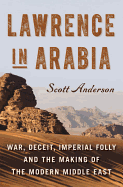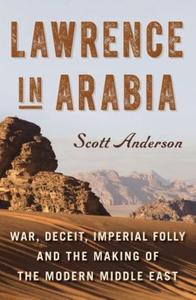

Anderson focuses on four young men, three of whom are "little remembered today," who, for good or bad, set the stage for what would happen in the Middle East over the next century. First was Lawrence: an archeologist and mapmaker at heart turned leader, soldier and renegade diplomat. Then there was Curt Prufer, an academic who also worked for the German embassy in Cairo. Aaron Aaronsohn, a celebrated agronomist and Zionist, played a "signal role in the creation of the Jewish homeland." And William Yale, a member of the American aristocracy, was a field intelligence officer and a "secret agent" for Standard Oil.
Lawrence was posted to Cairo in 1914. His productive work with Arab leaders helped convince them to work with the British army to defeat the Turks. He orchestrated a stunning surprise attack on Aqaba and helped in the capture of Damascus and the establishment of a provisional Arab government. Meanwhile, Prufer did his best to foment Arab hatred toward Britain, while Aaronsohn spied on and duped the Ottomans. Yale, present at the Paris Peace talks, quit in disgust when he observed the deceit inflicted upon the Arabs. On a December morning in 1918, the British and French Prime Ministers met and carved up the "Great Loot"--Syria to France, Mesopotamia and Palestine to Britain--thus keeping Woodrow Wilson and the United States in the cold, despite the Arabs' clamor for American intervention. Everything Lawrence fought for was "turned to ashes."
Anderson's genius is to show how the actions of these four men intertwined on many levels, resulting in bad decisions by the Ottomans that would "unleash forces of such massive disintegration that the world is still dealing with the repercussions a century later." His research is extensive and well integrated into the story, while the prose is as addictive and sophisticated as the best John le Carré thriller. --Tom Lavoie
Shelf Talker: A masterful piece of historical research and writing that sheds new light on Lawrence of Arabia and others to show how the Middle East became the mess it is today.

